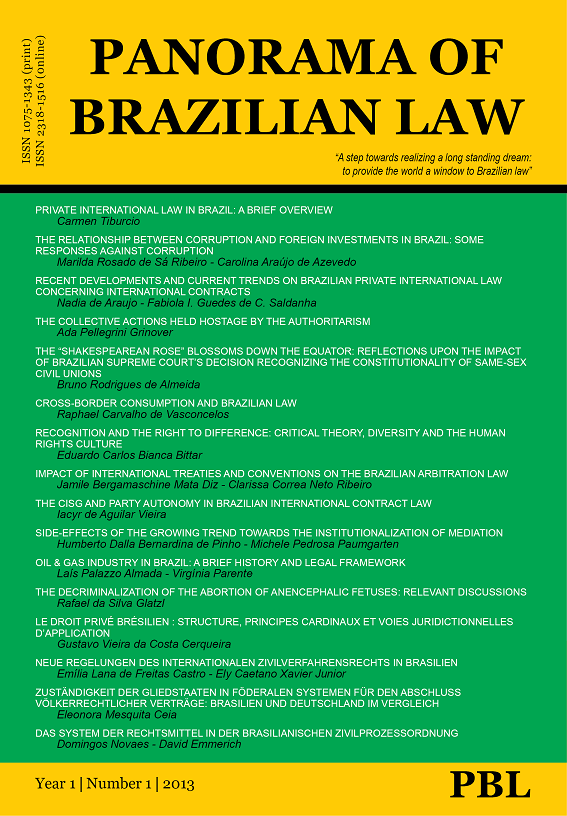SIDE-EFFECTS OF THE GROWING TREND TOWARDS THE INSTITUTIONALIZATION OF MEDIATION
Abstract
For some time, Europe, Brazil and the United States have been suffering from the systemic inefficiency of their Courts, with a significant impact on the guarantee of access to justice for their citizens, making alternative dispute resolution (A.D.R.) a constant presence in both civil and common law systems of jurisdiction. The upshot has been the institutionalization of ADRs, taking the form of a routine presence in codes of civil procedure, while their practice is connected to the courts. However, both institutionalization and the obligation to take part in mediation programs before or after starting the suit are exceptional measures, which must be adopted with caution. The experience of the European Union with its Directive, the Brazilian experience of inserting mediation into the project for the new Code of Civil Procedure and the use of mediation to overcome the conflicts arising from the serious mortgage crisis in the U.S.A. will be analyzed in this article, seeking to demonstrate that the progress and diffusion of ADRs does not necessarily entail a breach with their underlying foundation, and particularly with regard to mediation, the loss of its identity, for it to be inserted into the context of access to justice.Downloads
Published
2013-05-30
How to Cite
Pinho, H. D. (2013). SIDE-EFFECTS OF THE GROWING TREND TOWARDS THE INSTITUTIONALIZATION OF MEDIATION. PANORAMA OF BRAZILIAN LAW, 1(1), 187–221. Retrieved from https://www.e-publicacoes.uerj.br/pbl/article/view/34367
Issue
Section
Articles
License
Panorama of Brazilian Law employs Open Journal Access policies.
Authors are fully and exclusively responsible for their submissions.
Authors who publish with this journal agree to the following terms:
- Authors retain copyright and grant the journal right of first publication with the work simultaneously licensed under a Creative Commons Attribution-NonCommercial-ShareAlike 4.0 International License that allows others to share the work on a non-comercial basis with an acknowledgement of the work's authorship and initial publication in this journal and indicating if any changes were made. If you remix, transform, or build upon the material, you must distribute your contributions under the same license as the original.
- Authors are able to enter into separate, additional contractual arrangements for the non-exclusive distribution of the journal's published version of the work (e.g., post it to an institutional repository or publish it in a book), with an acknowledgement of its initial publication in this journal.

